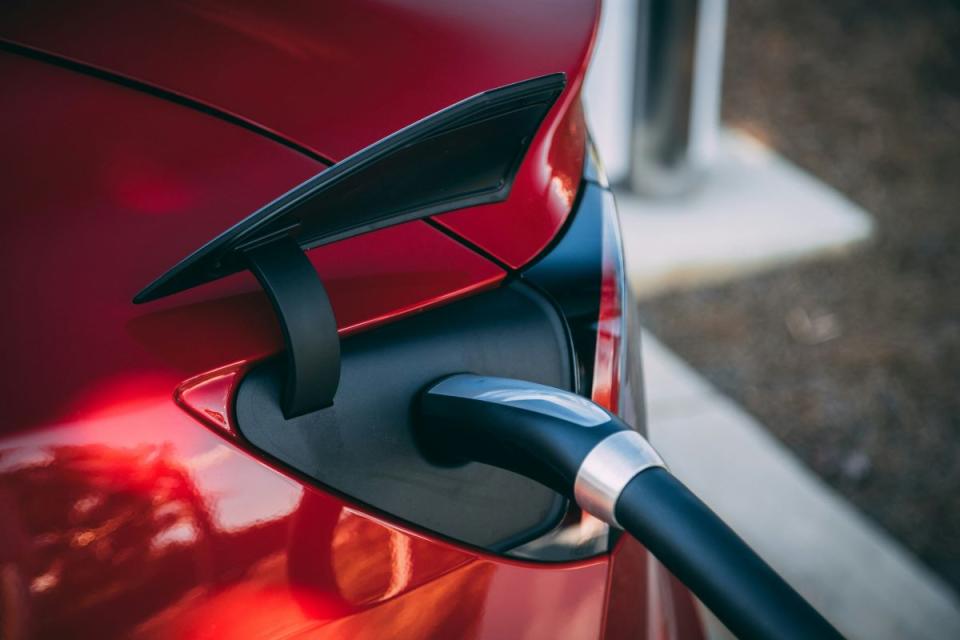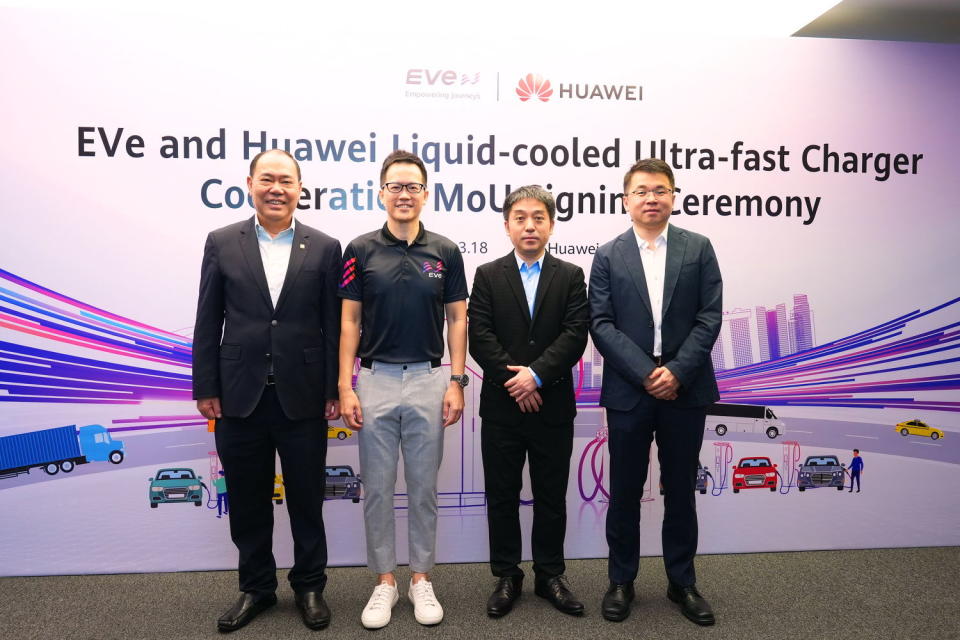EVe and Huawei to bring "petrol kiosk-like" experience to EV charging in Singapore

Rated at 480kW, Huawei’s ultra-fast chargers can charge EVs at the approximate rate of one kilometre per second.
Concerns around charging are a major inhibitor of electric vehicle (EV) adoption in Singapore. Drivers are not only worried about the lack of EV chargers, but also the long time it takes to fully charge the vehicle.
To address this issue, EV-Electric Charging (EVe) – a wholly owned subsidiary of Singapore's Land Transport Authority – will work with Huawei on proof-of-concept (POC) projects to reduce EV charging time.

From left to right: Goh Toh Sim, board director, EVe; Derek Tan, chief executive officer, EVe; Terry Gao, managing director, Huawei Digital Power Singapore; and Maxi Wang, chief executive officer, Huawei International. Photo: Huawei and EVe
Rated at 480kW, Huawei’s Fully Liquid-cooled Ultra-fast chargers can charge EVs at the approximate rate of one kilometre per second, which means a full charge will take minutes. In comparison, a full charge on most conventional 50kW fast chargers requires nearly one hour.
“At almost 10 times the speed of conventional fast chargers, we can help users save even more time [with Huawei’s Fully Liquid-cooled Ultra-fast chargers]. And at some point, hopefully, we can bring the charging experience closer to [refuelling internal combustion engine or hybrid vehicles at] petrol kiosks, [where it only takes a few minutes to charge an EV],” says Derek Tan, chief executive officer of EVe.
At a media briefing earlier today, he also shared that Huawei’s Fully Liquid-cooled Ultra-fast chargers will be rolled out to one or two locations in Singapore as POCs by the second half of this year. While the locations are still unconfirmed, at least one of them will be able to host electric minibuses and light goods vehicles. This is because EVe believes that such commercial fleets, together with electric taxis and private hires, will benefit the most from ultra-fast EV charging.
“Infrastructure needs to lead EV adoption. Without fast chargers, more EV fleets won’t come in and be adopted. [Deploying Huawei’s ultra-fast chargers is a] futureproofing move as the chargers can also offer fast charging to higher power 800-volt EV commercial fleets [when they become mainstream in Singapore in the future],” states Tan.
He adds: “[The move will help] reduce infrastructure investment and the impact on the grid too, as fast charging means we can have fewer chargers [around to serve the same number of EVs]”.
Commenting on the partnership, Maxi Wang, chief executive officer of Huawei International, says: “Huawei is always dedicated to innovating sustainable solutions for our shared green future. By working together with EVe, we can better support Singapore’s growing EV population, and contribute our parts to the Singapore Green Plan 2030 agenda and beyond.”
While Huawei’s Fully Liquid-cooled Ultra-fast chargers to be trialled in Singapore are rated at 480kW, they are also available at 600kW. The 600kW chargers are being rolled out in China and are said to be compatible with all EVs including Tesla’s, reports Nikkei Asia on Feb 8, 2024.
See Also:
Click here to stay updated with the Latest Business & Investment News in Singapore
Fuelling Singapore’s transition to sustainable mobility with data
Get in-depth insights from our expert contributors, and dive into financial and economic trends

 Yahoo Finance
Yahoo Finance 